A New Ethical Standard Towards Perfume Consumers
The ECLIP List
Fragrantica interview with AbdesSalaam Attar
by Naheed Shoukat Ali 08/30/11 12:17:00
I had an opportunity to do an interview with the perfumer AbdeSalaam Attar, the owner of La Via del Profumo. He is going to make a public announcement to all the Independent Perfumers about the ECLIP list, which is the complete list of all the ingredients used in perfumes. It can be viewed here. We in particular talked about the ECLIP list of his own ingredients which can be viewed here.
AbdeSsalaam Attar: The Ethical Complete List of Ingredients in Perfumes, the ECLIP list, is simply the list of all the types of ingredients that a perfume can contain today.
In the perfume industry there is no real information about the ingredients contained in perfumes, while more and more people would like full information about the products they buy, because we live in a time where ethical consumerism is growing.
Indie perfumers are becoming a new protagonist in the field of perfumery and they have a different mission than corporations of the industry. They are friends with their customers, they interact with them in person and on the web, they even make custom perfumes for them. This relationship is real, sincere and often intimate. Indie perfumers are a little bit like rock performers who live by their fans.
I believe that they have a moral duty to answer to the need of complete information from the public, a moral duty that corporations do not have, not being human. I have done so myself on my site. The list is to be divided in two parts: “what I use” and “what I do not use.” The choice of using (or not) an ingredient is a personal choice for every perfumer. Honesty is to make one’s choices known.
AbdusSalaam Attar: Some customers can object to the use of animal pheromones in perfumery on different grounds, such as vegetarian, vegan and also persons who just want to take a stand against ill treatment of animals. Killing animals for food, fur and perfumes is unacceptable to vegetarians. Using a product of animal origin is unacceptable to vegans, and cruelty to animals is unacceptable to everybody.
Hyraceum and ambergris are just waste products of animals, they expel them without human intervention or captivity. Castoreum is killed by quotas in order to preserve it’s environment from overpopulation, because his natural predators have disappeared.
Civet is kept in captivity and the conditions today are reputed good. The civet farmers keep their animals with as much care as Western milk producers keep their cows. It is a question of survival for them.
The process of extracting the civet paste is certainly disagreeable to the animal but not painful or harmful as it has been described. Farming Civets and use of Civet paste has been existing for at least fifteen hundred years, mainly for the traditional pharmaceutical use of these pheromones. Only lately (200 years?) has it been used in perfumes and recently it has been almost completely discarded because of the price of civet paste.
Not all my perfumes contain animal scents. When they do I mention “NON-VEGAN,” and when they do not contain them I mention “VEGAN.”
AbdusSalaam Attar: Natural alcohol is obtained by fermentation of grain, corn, sugar cane and other agricultural raw materials that are then distilled to obtain pure 95° ethanol. Synthetic alcohol is obtained by mixing ethylene (gas obtained from petroleum or from fossil gases) with steam at a temperature of 300° Celsius (572 degrees Fahrenheit). The ECLIP list gives definitions for every product explained by Roberto Dario in a language that people can understand without having a chemistry PHD.
AbdusSalaam Attar: Propylene Glycol is contained only in my cocoa extract because it is extracted with it. PG is a type of alcohol (double alcohol) obtained mostly from petroleum.
AbdusSalaam Attar: More people know only synthetic perfumes from the industry, they are “nose washed.” A non-educated, non-perfumista public, aware of only the mainstream production, cannot recognize as a “real perfume” something that does not smell of chemical compounds and of solvent.
Mixing synthetics with naturals allows the making of perfumes that smell like normal perfumes but better, and that last like normal perfumes. Such perfumes are much more easily understood by the public and they sell better and easily bring recognition to a perfumer. Natural ingredients are generally more expensive, more difficult to find, there is less margin of profit and they are more difficult to sell. At least until the recent trend for naturals (thanks to Mandy Aftel and to the Natural Perfumers Guild)
The cons of synthetics are to be evaluated by the public itself. Some people who have allergies to MCS cannot use them at all. Many of these molecules have been forbidden on health grounds only after many years of widespread use; many more presently used are highly controversial on health and pollution grounds, and most of those that we are using right now have not been tested over years for their safety. Google for “aroma chemical health hazard” and you will get a lot of information. The hazard is real. For instance, only now is it understood that the phthalates are having an effect only on the progeny of those who have been exposed to it (again google for that but be prepared for shivering info).
We must understand that any aromatic molecules, natural or synthetic, that we put on our skin does evaporate only in part, producing that nice smell. Most of it penetrates through the skin, enters the blood circulation and reaches all the organs. This is why perfumes last for days on blotters and only hours on our skin. This is also why we should be careful about what we spray daily on our body.
AbdusSalaam Attar: Some of these aromas are very classical, for instance acetate vetiveryl and acetate cedryl. They are very refined, elegant and very long-lasting scents. They are used only in high-class perfumery because they are even more expensive than their essence of origin. You get 80% acetate vetiveryl from the best Haitian vetiver oil. The cost of work, equipment and chemical products (acids) increases further the price. They are precious ingredients in the classical perfumery.
About mainstream perfumery, I believe that most of their fine fragrances are at the level of shampoos scents, because of too much cuts in the cost of the juice.
AbdusSalaam Attar: I do not use these ingredients because I do not perceive their smells as natural odors that exist in nature and I have chosen to make perfumes only with smells produced by nature. These ingredients, as elegant and seductive as they can be, disturb my nose, they give me the impression that it has become frozen. For the same reason I do not use synthetics, they either give me headache or asthma or they overcome my nose by sticking themselves inside so that I cannot get rid of them. I guess that 25 years immersed in natural essences have irremediably changed my perception of perfumes. If you are interested in the reasons for this choice you can read my Mission page.
AbdusSalaam Attar: Wheat germ oil is obviously extracted from wheat germ and it is almost pure Vitamin E. It is a kind of oil and it can be used only in oil-based perfumes. Synthetic vitamins, for example Vitamin C is synthetized from glucose and is soluble in alcohol. It can be used to help keep the perfumes without changing their composition by way of oxidation.
AbdusSalaam Attar: Perfumery denaturant is a blend of two chemical products that make ethanol improper for consumption. You would immediately vomit. The problems with denaturant are health related (just google for MEK health hazard) and also smell related—it just smells bad. What people think to be the smell of alcohol in perfumes is in fact the smell of MEK and bitrex.
This is why I do not use denaturants, but using them is perfectly legal. It is just a choice of the perfumer. You will find all explanations about denaturants by Roberto Dario on the ECLIP list.
AbdusSalaam Attar: As for the bio-tech molecules, I just do not like their odor, they smell like chemicals to me. I never tried natural isolates. Having a very wide range of essences and absolutes at my disposal I was never tempted to even smell them. How can a part be better than the whole?
AbdusSalaam Attar: At the moment only OGM vegetable oils such as corn and soya could be used in solid or oil-based perfumes. I do not know of essential oils from OGM but the future goes in this direction. This is why I mentioned this type of ingredient in the ECLIP list.
AbdusSalaam Attar: My using or not using a type of product is my free choice and I do not propose it as an example to others. Not everything in my “not use” list is left away on ethical or health grounds.
For instance, I do not use vegetable oils because I do not make oil-based perfumes or solid ones. I do not use isolates because I do not see the point to do so, but I do not use synthetics because there is a health risk and because I do not like their smell.
The community of indie perfumers is fast growing. Most of them, just like me, do not have the first prerequisite to be a perfumer in the industry, which is a sound knowledge of chemistry. The story of perfumery has shown repeatedly that we are handling substances that can affect deeply the health of people, be they natural or synthetic. Our customers should be informed about the ingredients of their fragrances because they have a right to know.
My idea about natural perfumes is that a natural perfumer should be grounded in aromatherapy, and about synthetics, that a perfumer using them should be grounded in chemistry or at least, if they are not grounded, that they should be studying in order to become grounded.
Bees wax has been used for its beneficial properties for thousands of years. This is the best choice. I do not use waxes because I do not make solid perfumes. I have no idea about the safety of waxes from petroleum, but the indie perfumers who make solid perfumes can inform you.
I want to make it clear thet the ECLIP list does NOT classify the ingredients in “safe” and “unsafe,” it only shows ALL the ingredients used in perfumes. They are all legal. The perfumer is free to choses what ingredients he uses, then he should feel morally bound to inform his customers so that they can be free to choose what they use. Freedom comes from knowledge and is first of all the freedom to choose. Human choices are loaded with ethics, unlike the choices of corporations.
AbdusSalaam Attar: The so called “natural allergens” are 16 molecules present in most essential oils that are “allergen by law,” but they are disobedient and persistently refuse to cause allergies to the people.
The body who recently decided that most natural essences are “legally” unsafe is IFRA, a private entity representing the corporations of the fragrance industry. The power of IFRA is measured by the fact that the smallest of all creatures, atoms and molecules, refuse to take this organism into consideration.
AbdusSalaam Attar: Rules and regulations in this field are mostly coming in the interest of corporations, against the interest of the consumers. This is why I propose that the indie perfumers regulate themselves individually according to a pact of friendship with their fans and clients. Sincerity, honesty and respect should be the basis of the relationship between an indie perfumer and his public. Offering full information about the ingredients he uses can be the formal way to engage this pact of friendship.
More indie perfumers are coming every year. The time is finished when the profession of perfumer was reserved to a caste issued from the industry. We are now living in a unique time for perfumery, the second historical democratization of perfume. Many Indie perfumers hold classes, educate and transmit know-how. Raw materials are widely and easily available to all and finally, the internet has allowed new perfumers to bypass the traditional circuit of distribution.
It is also incontestable that in recent years the Natural Perfumers Guild has played a unique educational role by forming many new perfumers and helping them into “coming out” on the market. The ECLIP list is a shared “open font” document, and more ingredients can be added by any user. The only essential principle is that both “I use” and “I do not use” are mentioned by the perfumers, so that no room is left for doubt.
The future of the ECLIP list is in the hands of indie perfumers. Their participation in building it is indispensable, but in any case, thanks to the internet “eternal” archives, the ECLIP list will always have a present in the future. The probable evolution of the list is that it will become more complete on ethical issues, for instance by declaring single essential oils whose plant of origin is threatened like wild Oud or synthetic materials that are particularly polluting like macro musks.
This is why the collaboration of consumer associations and of organisms such as CITES, Cropwatch or Greenpeace could very well transform the ECLIP list into a very different thing than just a list of ingredients. It could become the most complete and updated instrument of information about perfume ingredients, their safety and their ethics.
Image of Sharif perfume by Nathan Branch, Nature pics from Fotolia
Author
Naheed is a freelance writer for Fragrantica and works as a yoga instructor for senior citizens.
Original link https://www.fragrantica.com/news/A-New-Ethical-Standard-Towards-Perfume-Consumers-The-ECLIP-List-2482.html
The ECLIP List

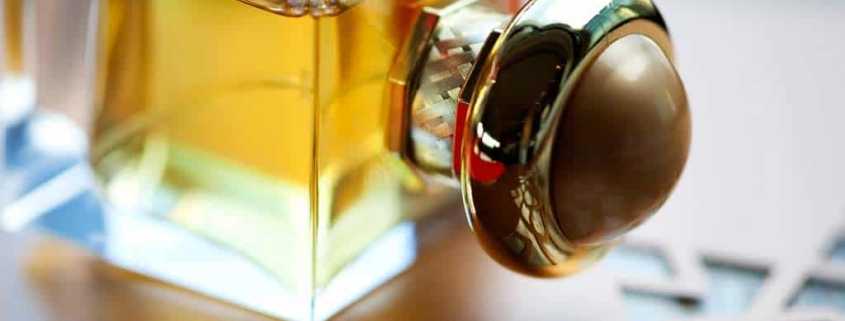













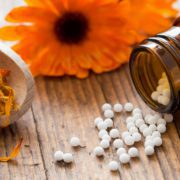
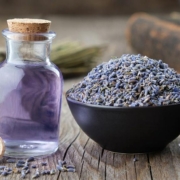
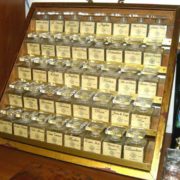
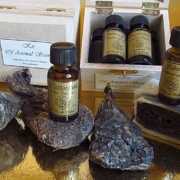
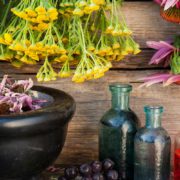
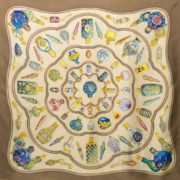














Leave a Reply
Want to join the discussion?Feel free to contribute!